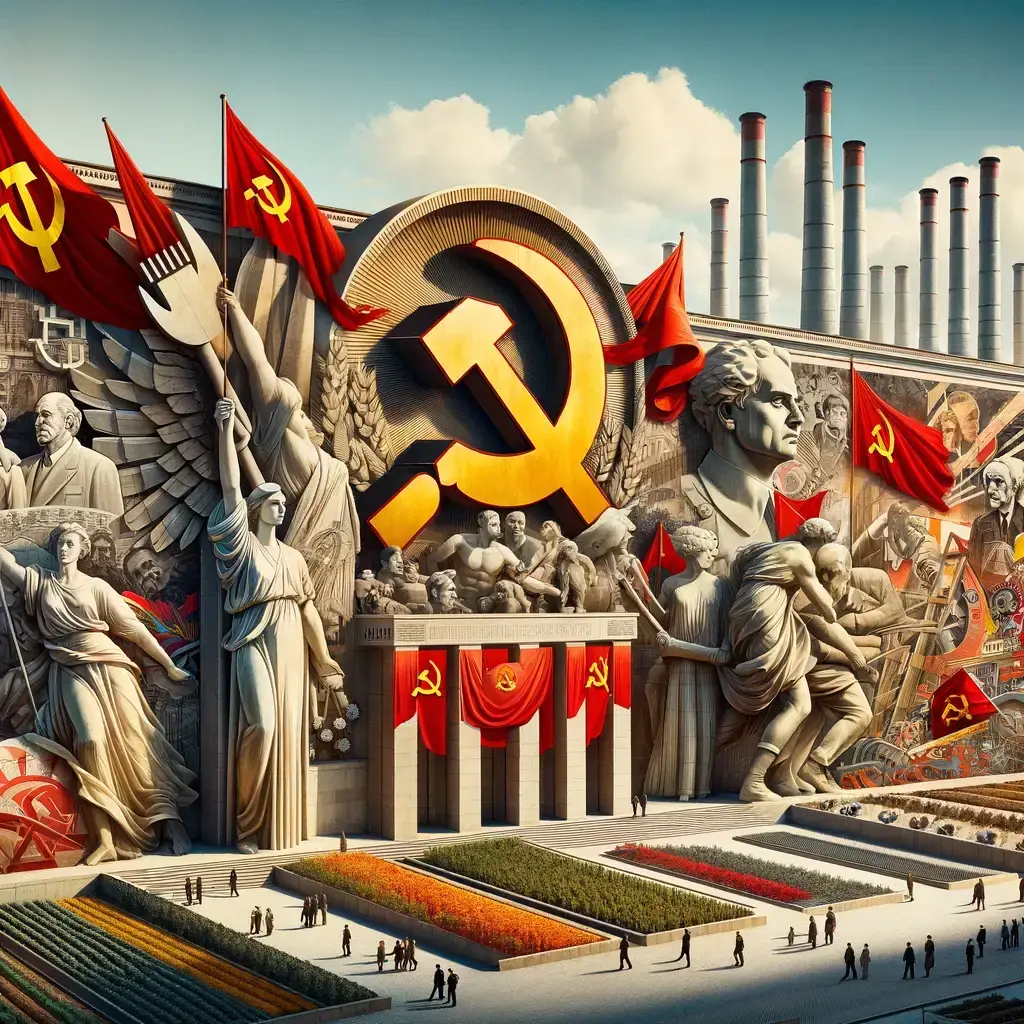Communism
What is Communism?
Communism is a political and economic ideology advocating for a classless society where all property and resources are collectively owned, eliminating private ownership. In communism, goods and services are distributed based on need, aiming to achieve complete social equality and eliminate class distinctions, as envisioned by thinkers like Karl Marx.
The Rise of Communism
Communism emerged in the 19th century as a response to inequality during the Industrial Revolution. Thinkers like Karl Marx and Friedrich Engels believed workers were treated unfairly in capitalist systems. They proposed communism as a way to create a society where everyone shares resources equally. Their ideas gained popularity among workers and inspired revolutions. Over time, countries like Russia and China adopted communist systems, reshaping history.
How Communism Works
In communism, the government owns all property and controls industries. The goal is to eliminate social classes by sharing wealth equally among citizens. People work for the benefit of the entire community, not for personal profit. In theory, this system ensures fairness for everyone. However, in practice, it has faced challenges like inefficiency and lack of individual freedom.
Key Figures in Communist Movements
Karl Marx and Friedrich Engels are known as the founders of communist theory. Their book The Communist Manifesto outlined their vision for a classless society. Vladimir Lenin led the Russian Revolution in 1917, making the Soviet Union the first communist state. Leaders like Mao Zedong in China and Fidel Castro in Cuba also used communist ideas to shape their countries. These figures left a lasting mark on world history.
Revolutions Inspired by the Idea
Communist ideas inspired major revolutions in the 20th century. In Russia, the Bolsheviks overthrew the monarchy to create a socialist government. In China, the Communist Party gained control after years of civil war. These revolutions aimed to give power to workers and peasants. While they promised equality, the results were often more complex and sometimes led to strict government control.
Communism vs. Capitalism
Communism and capitalism are very different systems. In capitalism, private businesses compete to make profits, while in communism, the government controls resources to ensure equality. Capitalism encourages innovation but can create inequality. Communism focuses on fairness but may limit personal freedoms. Understanding these differences helps explain why nations have chosen one system over the other—or a mix of both.
Daily Life in a Communist State
Life in communist countries varies but often includes government-provided housing, healthcare, and education. Jobs are assigned based on community needs rather than personal choice. While these services aim to reduce poverty, people may have fewer freedoms to own businesses or express opinions. The government plays a central role in shaping daily life, with strict rules to maintain order.
The Cold War and Its Impact
The Cold War was a period of tension between communist and capitalist nations, led by the Soviet Union and the United States. Both sides competed in areas like space exploration, military power, and global influence. The division between communism and capitalism created conflicts worldwide, such as the Vietnam and Korean wars. This rivalry shaped global politics for decades.
Communism’s Effect on Global Trade
Communist systems often limit trade with capitalist nations. Instead, they focus on self-reliance or partnerships with other socialist countries. This approach can strengthen local industries but may also restrict access to foreign goods. Over time, some communist countries, like China, adopted capitalist elements to boost their economies. This blend shows how trade and ideology can influence one another.
The Fall of the Soviet Union
In 1991, the Soviet Union, the world’s largest communist state, collapsed. Economic struggles, political corruption, and public dissatisfaction weakened its system. Many former Soviet states transitioned to capitalist economies or democratic governments. This marked the end of the Cold War and significantly reduced communism’s influence worldwide.
